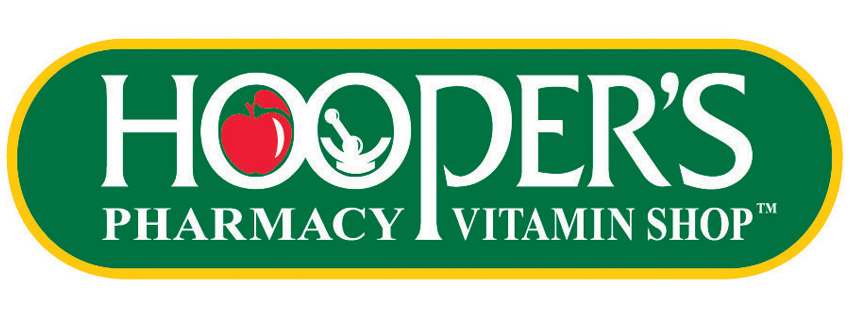How to spot the signs of nutrient deficiencies in kids.
Being a parent is a truly rewarding experience. But, if you’ve had children, you’ll likely know some of the main stress inducers that come with the job. Along with “Will they ever sleep through the night?” one of the big ones involves how and what our children eat (or don’t eat!).
Because it can be such a concern for many parents, let’s explore how nutrient deficiencies can affect our kids, how to spot them, and how to prevent them. Some of the nutrients our children may not be getting enough of include vitamins B, C, and D; minerals calcium, magnesium, potassium, iron, and zinc; and fibre.
VITAMIN Bs
Eight of our body’s 13 essential vitamins begin with the letter B. Each of the eight Bs is a chemically distinct vitamin that has an important role in our kids’ overall health—and together they’re essential to many aspects of their wellbeing.
Why they’re important
Collectively, B vitamins are essential to many aspects of brain function, energy production, and our body’s ability to build and repair muscle mass. Deficiencies in B vitamins are most often seen in vitamin B12 (especially for vegan and vegetarian kids) and B9 (folate).
Signs of deficiency: fatigue, weakness, anemia, loss of appetite, weight loss, failure to thrive and grow, and difficulty with memory and concentration.
VITAMIN C
Although we often think about vitamin C when we have a cold, our children’s bodies depend on this important nutrient every day for a host of important functions.
Why it’s important
With critical roles in our immune system, wound healing, bone health, and antioxidant protection, it’s especially important for our kids to get enough vitamin C in their diets. Luckily, there are plenty of vitamin C-rich foods that’ll help keep intake up and their diet fun.
Signs of deficiency: irritability, poor appetite, bleeding gums, easy bruising, dry skin, and slow wound healing.
VITAMIN D
This important nutrient can be naturally found in a few foods (egg yolks and fatty fish), is added to fortified dairy products such as milk, and can be consumed via supplements. However, the body also makes vitamin D when exposed to sunlight.
Why it’s important
Also known as the sunshine vitamin, this fat-soluble essential vitamin aids in the regulation of calcium and phosphorous in our bodies. Because of this, vitamin D plays a very important role in building and maintaining our bones and teeth.
Signs of deficiency: bone pain, muscle aches, fatigue, mood changes, and dental problems.
CALCIUM
One of the most abundant minerals in our bodies, calcium supports the structure of our (and our kids’) bones and teeth, and it’s also important for muscle and nerve function and hormone release.
Why it’s important
Bone calcium stops increasing in young adulthood, so getting off to a healthy start is critical to strong bones later in life.
Signs of deficiency: muscle cramps or weakness, numbness or tingling in fingers, lips, or feet, poor appetite, and confusion or forgetfulness.
MAGNESIUM
The mineral magnesium plays many roles in the body, including blood sugar and blood pressure regulation, muscle and nerve function, and the regulation of various proteins and hormones.
Why it’s important
Magnesium is also crucial for activating vitamin D, which has long been recognized as essential for a healthy immune system. Some older children can be more at risk of deficiency of this important mineral.
Signs of deficiency: loss of appetite, nausea/vomiting, fatigue, and weakness.
POTASSIUM
An essential nutrient, potassium is found in all our body tissues. It plays important roles in maintaining total body fluid volume, acid and electrolyte balance, and normal cell function.
Why it’s important
The fact that Canadian kids consume far more sodium than is healthy for their long-term health is concerning, since the combination of too much sodium and too little potassium in our diet is associated with higher blood pressure.
Signs of deficiency: muscle weakness, cramps, constipation, fatigue, and confusion.
IRON
Iron is an essential nutrient best known for its role as a component of hemoglobin, the oxygen-carrying protein in the blood that helps move oxygen from the lungs to the rest of the body. It also helps muscles store and use oxygen.
Why it’s important
Children need a steady intake of iron to fuel their rapid growth and development. It’s especially important for teenage girls to replenish the iron that their bodies lose during menstruation.
Signs of deficiency: weakness, fatigue, shortness of breath, dizziness, headache, irritability, feeling cold and pale skin.
**Iron from non-meat sources is not as well absorbed by our bodies as iron from meat. To boost absorption of plant-based iron, be sure vitamin C-rich foods such as fruits and vegetables are part of most meals and snacks.
ZINC
An essential nutrient, zinc is almost as plentiful in the body as iron. It’s found in our eyes, brains, pancreas, kidneys, liver, and adrenal glands.
Why it’s important
Zinc is important for growing kids’ brain development, sensory processing, memory, and cognition. It’s also an important element in immune function. Supplementing with zinc might help reduce your child’s risk of getting the common cold. If they succumb, though, zinc lozenges taken within 24 hours of the initial symptoms might help shorten their cold’s duration and severity.
Signs of deficiency: loss of appetite, hair loss, diarrhea, weight loss, and delayed wound healing.
FIBRE
There are two types of fibre we need for good health. Soluble fibre (in mostly fruits and veggies) absorbs water as it passes through our digestive tract and makes us feel fuller. Insoluble fibre (in cereals and whole grains) passes through our digestive tract without much change and improves the quality of bowel movements.
Why it’s important
Fibre promotes good digestive health, regular bowel movements, and blood sugar balance in both children and adults, but intake for Canadians, including kids, is woefully inadequate.
Signs of deficiency: constipation, diarrhea, belly pain, weight gain, and fatigue.
“When Our Kids Aren’t Getting Enough – Alive Magazine.” Alive, 10 Aug. 2022, https://www.alive.com/health/when-our-kids-arent-getting-enough/.



